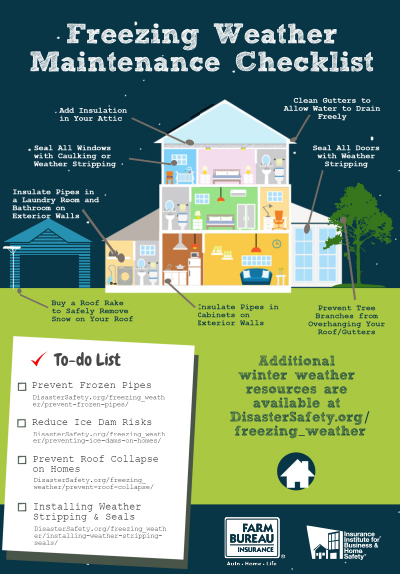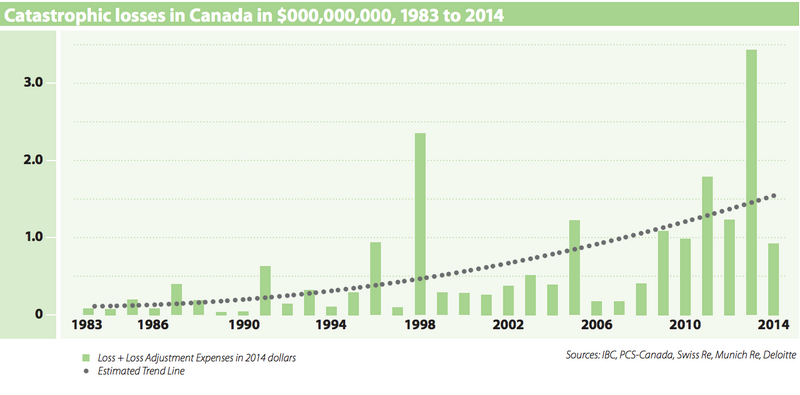
How Weather Events Impact Home Insurance Claims.
Weather events can have a significant impact on homeowners and their insurance claims. From severe storms to natural disasters, such as hurricanes, tornadoes, wildfires, and floods, these weather events can cause extensive damage to homes.
When a weather event occurs, homeowners may experience a variety of issues, including roof damage, broken windows, flooding, or even complete destruction of their property. As a result, many homeowners turn to their insurance companies to file a claim and receive financial assistance to repair or rebuild their homes.
Insurance companies carefully assess the damage caused by weather events and determine the coverage and compensation they will provide to policyholders. The process involves documenting the extent of the damage, obtaining estimates for repairs or replacement, and coordinating with contractors and adjusters to ensure a smooth and efficient claims process.
However, it is important to note that not all weather-related damage may be covered by standard home insurance policies. Some insurance policies may exclude certain types of weather events or have limitations on coverage. It is crucial for homeowners to carefully review their insurance policies and understand what is covered and what is not.
In conclusion, weather events can have a significant impact on home insurance claims. Homeowners should be aware of the coverage provided by their insurance policies and take appropriate measures to protect their homes against potential weather-related risks. Regular maintenance, such as trimming trees and reinforcing windows, can help mitigate the impact of weather events and reduce the likelihood of extensive damage.
The Impact of Weather Events on Home Insurance Claims
When it comes to protecting our homes, insurance is a vital tool that homeowners rely on. One significant factor that can heavily influence home insurance claims is weather events.
Weather events such as hurricanes, tornadoes, wildfires, and severe storms can cause extensive damage to homes. This damage often leads to an increase in insurance claims as homeowners seek coverage for repairs and replacements.
One of the most common impacts of weather events on home insurance claims is property damage. Strong winds can tear off roofs, break windows, and damage the structure of a home. Heavy rain can cause flooding, resulting in ruined floors, furniture, and electrical systems. Hailstorms can leave dents and holes on the exterior of a house, and lightning strikes can cause fires that destroy homes.
Another significant impact of weather events on home insurance claims is the loss of personal belongings. In cases of severe storms or floods, water damage can ruin furniture, clothing, electronics, and other valuable items. Homeowners often need to file claims to recover the cost of these lost belongings.
Weather events also have indirect impacts on home insurance claims. For example, during hurricane seasons, many insurance companies impose higher deductibles or exclude certain perils from coverage. This can result in higher out-of-pocket expenses for homeowners. Additionally, homeowners may experience higher insurance premiums after filing a weather-related claim.
To mitigate the impact of weather events on home insurance claims, homeowners can take preventive measures. This includes reinforcing the structure of the home, installing storm shutters or impact-resistant windows, clearing gutters and drains, and landscaping to prevent flooding. Additionally, regularly reviewing and updating home insurance policies can ensure adequate coverage for potential weather-related damage.
In conclusion, weather events can have a significant impact on home insurance claims. From property damage to the loss of personal belongings, homeowners often turn to insurance to recover from the financial burdens caused by these events. By understanding the potential impacts and taking preventive measures, homeowners can better protect their homes and navigate the insurance claims process.
Increasing Home Insurance Claims
The impact of weather events on home insurance claims has been significant in recent years. With more extreme weather events occurring, homeowners are increasingly filing claims for damages caused by these events.
Severe storms, such as hurricanes, tornadoes, and hailstorms, have caused extensive damage to homes and properties. These weather events can lead to roof damage, broken windows, and flooding, among other issues. As a result, homeowners are turning to their insurance companies to cover the costs of repairing or rebuilding their homes.
In addition to severe storms, other weather events like wildfires and flooding have also contributed to the increase in home insurance claims. Wildfires can destroy entire neighborhoods, leaving homeowners with significant property damage. Flooding, whether caused by heavy rain or overflowing rivers, can also lead to extensive damage to homes and belongings.
The rising frequency and severity of these weather events have put pressure on insurance companies to handle a larger number of claims. As a result, premiums for home insurance policies have increased to cover the costs of these claims. Homeowners may also face higher deductibles or limitations on coverage for certain types of damage.
Furthermore, the impact of weather events on home insurance claims extends beyond the financial burden. Homeowners often face the emotional stress of dealing with property damage and the process of filing a claim. With more claims being filed, insurance companies may also experience delays in processing and settling claims, adding further frustration to homeowners.
It is important for homeowners to be aware of the potential impact of weather events on their home insurance coverage. Understanding the extent of coverage for different types of weather-related damages can help homeowners make informed decisions and ensure they have adequate protection in place.
Understanding Weather-Related Claims
Weather events can have a significant impact on home insurance claims. Various weather conditions such as hurricanes, tornadoes, hailstorms, flooding, and wildfires can cause extensive damage to homes and properties.
Home insurance policies typically cover different types of weather-related damage depending on the specific terms and conditions of the policy. Common weather-related claims include roof damage, water damage, structural damage, and damage to personal property.
When a weather event occurs, homeowners who have experienced damage should contact their insurance company as soon as possible to file a claim. The insurance company will send an adjuster to assess the damage and determine the coverage and compensation the homeowner is entitled to.
It is important for homeowners to document the damage by taking photographs and making a detailed list of items that have been damaged or destroyed. This documentation will help support the claim and ensure a smoother process when dealing with the insurance company.
After the claim is filed, the insurance company will review the documentation and assess the claim’s validity. They will also consider the homeowner’s policy and coverage limits to determine the amount of compensation that will be provided.
Homeowners should be aware that weather-related claims may have certain limitations and exclusions. For example, some policies may not cover damage caused by certain weather events or may have specific deductibles for weather-related claims.
In areas prone to certain weather events, such as coastal regions prone to hurricanes or tornado alley, homeowners may need additional coverage or separate policies to protect against specific risks.
Understanding the coverage and limitations of a home insurance policy when it comes to weather-related claims is essential for homeowners. It allows them to be prepared for potential damage caused by weather events and ensure they have the appropriate coverage in place.
By understanding the impact of weather events on insurance claims and having the necessary coverage, homeowners can be better prepared to handle and recover from the damage caused by weather-related incidents.
Types of Weather Events
Various weather events can have a significant impact on home insurance claims. Understanding the different types of weather events that can potentially damage or destroy a home is essential for homeowners and insurance companies alike.
One common type of weather event that can significantly impact home insurance claims is a severe storm. Severe storms, such as hurricanes, tornadoes, or hailstorms, can cause extensive damage to houses, including roof damage, broken windows, and flooding. These events often result in a large number of insurance claims for homeowners.
Flooding is another weather event that can have a significant impact on home insurance claims. Floodwaters can rapidly enter a home, causing damage to the structure, electrical systems, and personal belongings. Many insurance policies require homeowners to purchase additional flood insurance to cover flood-related claims, as standard home insurance policies typically do not include flood coverage.
Wildfires are also a common weather event that can lead to numerous home insurance claims. In areas prone to wildfires, the close proximity of houses to forested areas can increase the risk of homes being damaged or destroyed by the spreading fire. Home insurance policies in these areas may include specific coverage for fire damage.
Other weather events that can impact home insurance claims include heavy snowstorms, which can cause roof collapses or damage from ice dams, and lightning strikes, which can damage electrical systems and appliances. Tornadoes, high winds, and heavy rains can also result in significant damage to homes.
Overall, it is crucial for homeowners to be aware of the various types of weather events that can impact their homes and to ensure they have adequate insurance coverage to protect against potential claims. Likewise, insurance companies must take into account the specific risks associated with different weather events when determining the premiums and coverage options for homeowners.
Hailstorm Causes and Damage
Hailstorms are severe weather events that can have a significant impact on homes and insurance claims. These events occur when strong updrafts in thunderstorms carry raindrops upward into extremely cold areas of the atmosphere. As these raindrops freeze, they form ice pellets, known as hail.
Hailstorms are most common in areas with strong thunderstorms and high winds. They can cause damage to roofs, windows, and siding of homes, as well as vehicles and other property. The size of hailstones can vary, with larger stones causing more damage. Hailstones can range in size from pea-sized to as large as golf balls or even larger.
The damage caused by hailstorms can be extensive. Hail can dent or crack roofs, break windows, and leave holes in siding. This damage can result in leaks, which can lead to water damage inside the home. If not addressed promptly, water damage can lead to mold growth and further deterioration of the structure.
Home insurance can help homeowners recover from hailstorm damage. Most standard home insurance policies cover hail damage, but it’s important for homeowners to review their policies and understand the coverage limits and deductible amounts. Some policies may have specific provisions or exclusions for hail damage, so homeowners should consult with their insurance agent to ensure they have adequate coverage.
In areas prone to hailstorms, homeowners may also want to consider additional coverage, such as supplemental hail insurance. This can provide extra protection and help to cover the cost of repairs or replacement of damaged property.
Overall, hailstorms can have a significant impact on homes and insurance claims. Understanding the causes and potential damage associated with hailstorms can help homeowners better prepare for these events and make informed decisions regarding insurance coverage.
Severe Storms and Their Insurance Impact
Severe weather events can have a significant impact on home insurance claims. When a severe storm strikes, it can cause extensive damage to homes and properties, leading to a surge in insurance claims.
These storms often bring high winds, heavy rain, hail, and even tornadoes, which can result in various types of damage. The most common types of damage caused by severe storms include roof damage, siding damage, broken windows, and flooding.
Insurance policies typically cover these types of weather-related damages, as they are considered natural disasters. However, it’s important for homeowners to review their policy to understand what is specifically covered and what may be excluded.
In many cases, severe storm damage claims can lead to increased insurance premiums. This is because insurance companies often consider these types of claims as a higher risk, and therefore adjust their rates accordingly.
Additionally, severe storms can also result in insurance deductibles. Homeowners may be responsible for a portion of the repair costs before insurance coverage kicks in. The amount of the deductible can vary depending on the policy and the severity of the storm.
It’s crucial for homeowners to document the damage caused by severe storms by taking photos or videos. This evidence can be used to support insurance claims and ensure that all necessary repairs are covered.
Furthermore, homeowners should report severe storm damage as soon as possible to their insurance company. Delays in reporting can lead to complications in the claims process and potentially result in a denial of coverage.
In conclusion, severe storms can have a significant impact on home insurance claims. It’s important for homeowners to understand what is covered by their policy and take the necessary steps to document and report the damage caused by these weather events.
Flooding and Water Damage

When it comes to home insurance, one of the most common types of claims is related to flooding and water damage. Severe weather events, such as heavy rainfall and hurricanes, can lead to significant water damage in homes. This can result in major financial impact for homeowners, as they may need to repair or replace damaged property.
Insurance policies often cover water damage caused by weather events, but the extent of coverage can vary. It is important for homeowners to review their insurance policy and understand what is included and excluded in their coverage. Some policies may cover only certain types of flood damage, while others may offer broader coverage.
When making an insurance claim for water damage, homeowners should document the extent of the damage and provide evidence, such as photographs and receipts for repairs. It is also important to notify the insurance company as soon as possible after the damage occurs to begin the claims process.
In some cases, homeowners may need to purchase additional flood insurance to ensure full coverage for water damage. This is particularly important for those living in high-risk flood zones. Without proper insurance coverage, homeowners may face significant financial burden in the event of flooding or water damage.
In summary, flooding and water damage caused by severe weather events can have a significant impact on home insurance claims. Homeowners should review their insurance policy, document any damage, and notify their insurance company promptly to begin the claims process. Additional flood insurance may be necessary for those living in high-risk flood zones.
Wildfires and Home Insurance Claims
Wildfires can have a devastating impact on homes and often result in homeowners filing insurance claims. The intense heat, strong winds, and flying embers associated with wildfires can cause significant damage to a property, leaving homeowners with costly repairs or even the total loss of their home.
Insurance companies typically cover wildfire damage under their home insurance policies. These policies can provide financial protection to homeowners, helping to cover the cost of repairing or rebuilding their homes, replacing damaged belongings, and even covering additional living expenses if the home becomes uninhabitable.
When a wildfire occurs, homeowners should contact their insurance provider as soon as possible to initiate the claims process. It’s important to document the damage by taking photographs or videos of the affected areas and providing any necessary supporting documentation, such as receipts for repairs or replacement items.
Insurance companies may send adjusters to assess the damage and determine the appropriate amount of compensation. Homeowners should cooperate with these adjusters and provide any requested information or documentation to help expedite the claims process.
In addition to covering the cost of repairing or rebuilding the home, insurance policies may also provide coverage for additional structures on the property, such as sheds or garages, as well as landscaping and outdoor items. Homeowners should review their policies carefully to understand the extent of their coverage.
It’s worth noting that some areas prone to wildfires may have specific insurance requirements or exclusions. Homeowners in high-risk wildfire zones may need to obtain additional coverage or take specific measures to protect their homes, such as clearing brush or maintaining a defensible space around the property.
In conclusion, wildfires can have a significant impact on homeowners and often result in insurance claims. Home insurance policies can provide financial protection to homeowners in the event of wildfire damage, covering the cost of repairs or rebuilding, replacing damaged belongings, and even additional living expenses. It’s essential for homeowners to understand their coverage and take appropriate measures to protect their homes in areas prone to wildfires.
Hurricanes and the Aftermath
When a hurricane strikes, it can cause extensive damage to homes and properties. This can lead to an influx of insurance claims as homeowners seek to recover the costs of repairing or rebuilding their homes.
Home insurance claims related to hurricanes can cover a variety of damages, including roof damage from high winds, water damage from flooding, and structural damage from fallen trees or debris. These claims can be expensive for insurance companies, as they often involve large sums of money to repair or replace damaged property.
In addition to the immediate impact of a hurricane, there can also be long-term effects on home insurance claims. For example, if a hurricane causes widespread damage in a particular area, insurance companies may see a spike in claims in the months and even years following the storm as homeowners discover hidden damage or delayed effects of the hurricane.
Insurance companies also consider the overall impact of weather events like hurricanes when setting insurance rates. If a particular area is prone to hurricanes or other severe weather events, insurance companies may charge higher premiums to account for the increased risk of damage.
Homeowners should be aware of the potential impact of hurricanes on their insurance claims and policies. It is important to review your policy and understand what is covered in the event of a hurricane or other weather-related damage. Additionally, homeowners may want to consider additional coverage or supplemental policies to ensure they are adequately protected.
Overall, hurricanes can have a significant impact on home insurance claims. From the immediate aftermath of a storm to the long-term effects of damage, homeowners should be prepared for the potential financial implications and ensure they have the necessary insurance coverage in place.
Tornadoes and Insurance Coverage
Tornadoes are one of the most destructive weather events, causing significant damage to homes and properties. The impact of a tornado can be devastating, often resulting in the need for extensive repairs or even complete reconstruction.
Home insurance policies typically provide coverage for damage caused by tornadoes, but the specific details of the coverage may vary. It is essential for homeowners to review their insurance policies and understand the terms and conditions to ensure they have adequate protection in the event of a tornado.
Most home insurance policies cover structural damage caused by tornadoes, including damage to the roof, walls, and foundation. The insurance policy also typically covers damage to personal belongings, such as furniture, appliances, and electronics, that are destroyed or damaged due to the tornado.
In addition to structural damage and personal belongings, some insurance policies may also provide coverage for additional expenses incurred as a result of a tornado, such as temporary living arrangements while the home is being repaired. This coverage, known as additional living expenses (ALE) or loss of use coverage, can help homeowners with the cost of hotel stays, meals, and other necessary expenses.
However, it is important to note that certain factors may affect the coverage provided by insurance policies. For example, if a homeowner neglects to properly maintain their property or fails to take necessary precautions to protect their home, the insurance company may deny the claim or reduce the coverage amount. It is crucial for homeowners to ensure they meet all the requirements set forth by their insurance provider.
When filing an insurance claim for tornado damage, it is essential to provide thorough documentation, including photographs, videos, and a detailed inventory of damaged or destroyed items. This documentation will help support the claim and ensure a more efficient and accurate assessment of the damage by the insurance company.
In conclusion, tornadoes have a significant impact on homes and properties and can result in extensive damage. Home insurance policies typically provide coverage for tornado damage, including structural damage, personal belongings, and additional living expenses. However, homeowners must review their insurance policies and meet all requirements to ensure they have adequate coverage in the event of a tornado.
Winter Weather and Home Insurance Claims
Winter weather can have a significant impact on home insurance claims. Extreme cold temperatures, snow, ice, and strong winds can cause damage to your home’s exterior, roof, and plumbing systems, leading to the need for an insurance claim.
One common winter weather event that can lead to home insurance claims is freezing pipes. When temperatures drop below freezing, water in your pipes can freeze, expanding and potentially causing them to burst. The resulting water damage can be costly to repair, which is where your insurance coverage can help.
Another winter weather event that can impact home insurance claims is heavy snowfall. The weight of accumulated snow can put stress on your roof, causing it to collapse or develop leaks. This can lead to not only damage to your roof but also to the interior of your home. If you have the appropriate coverage, your insurance can help cover the cost of repairs.
Ice dams are another winter weather event that can result in home insurance claims. When heat from your home melts the snow on your roof, the water can refreeze at the edge of your roof, creating an ice dam. This can prevent melting snow from properly draining, leading to water seeping into your home and causing damage. If your home insurance policy includes coverage for water damage, you may be able to file a claim for the necessary repairs.
In addition to these specific winter weather events, it’s important to remember that general wear and tear caused by prolonged exposure to cold temperatures can also lead to insurance claims. For example, freezing temperatures can cause cracks in your home’s foundation or damage to its exterior, both of which may require repairs that could be covered by your insurance policy.
To ensure that your home is adequately protected against the potential impact of winter weather events, it’s crucial to review your insurance policy regularly and make any necessary updates. This can help give you peace of mind knowing that you have the appropriate coverage in place to protect your home and assets.
Earthquakes and Insurance Considerations
Earthquakes are naturally occurring events that can have a significant impact on homes and properties. When it comes to insurance claims related to earthquakes, there are several considerations that homeowners should be aware of.
Firstly, it’s important to understand that standard home insurance policies often do not cover earthquake damage. This means that if an earthquake were to occur and cause damage to your home, you may not be able to file a claim with your insurance company to cover the costs of repairs or rebuilding.
In areas that are prone to earthquakes, homeowners may need to purchase separate earthquake insurance coverage to ensure they are protected. This type of insurance typically covers damage to the structure of the home as well as any personal belongings that may be affected by an earthquake.
When considering earthquake insurance, homeowners should also be aware that there may be certain exclusions or limitations in the policy. For example, some policies may have a high deductible for earthquake claims, meaning that homeowners would need to cover a significant portion of the costs themselves before the insurance coverage kicks in.
In addition, earthquake insurance may also have coverage limits, meaning that the maximum amount the insurance company will pay for earthquake damage is capped. It’s important for homeowners to carefully review the terms and conditions of their earthquake insurance policy to understand what is covered and what is not.
Furthermore, it’s important to note that earthquake insurance typically does not cover damage to land, such as sinkholes or landslides, unless it directly causes damage to the home. Homeowners may need to consider additional insurance coverage for these types of events.
In conclusion, earthquakes can have a significant impact on homes and properties, and it’s important for homeowners to understand the insurance considerations associated with these events. Purchasing separate earthquake insurance coverage, reviewing policy exclusions and limitations, and understanding coverage limits are all important steps homeowners can take to ensure they are adequately protected.
undefined
What types of weather events can impact home insurance claims?
Weather events such as hurricanes, tornadoes, floods, hailstorms, and wildfires can all have a significant impact on home insurance claims.
How can hurricanes affect home insurance claims?
Hurricanes can cause extensive damage to homes, including roof damage, flooding, and destruction of property. Home insurance claims related to hurricanes often involve repairs and replacements of damaged structures and belongings.
What should homeowners do after a tornado to file an insurance claim?
After a tornado, homeowners should first ensure their safety and then assess the damage to their property. They should document the damage by taking photos or videos and make temporary repairs to prevent further damage. To file an insurance claim, homeowners should contact their insurance company, provide all necessary documentation and details, and follow their instructions.
Do home insurance policies typically cover damages from hailstorms?
Yes, most home insurance policies cover damages caused by hailstorms. These damages can include broken windows, roof damage, dented siding, and damaged outdoor structures. However, the extent of coverage may vary depending on the specific policy and deductible.
Can wildfires impact home insurance claims?
Yes, wildfires can have a significant impact on home insurance claims. They can result in complete destruction of homes and properties, requiring extensive coverage for rebuilding and replacing belongings. Homeowners affected by wildfires should immediately contact their insurance company and follow their instructions to initiate the claims process.






